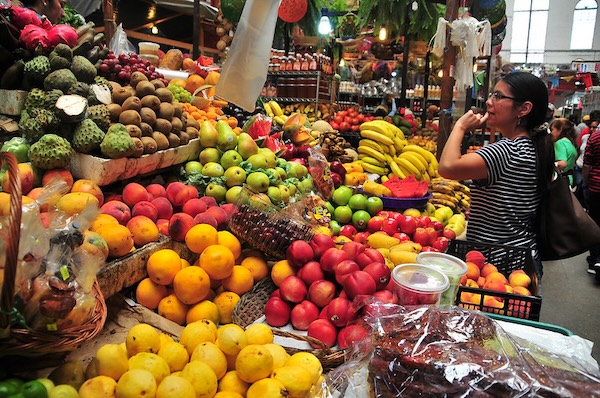
A common question for families considering worldschooling is: how does anyone afford it? While there isn’t a single answer to this question, the costs involved may surprise you. Families use a variety of strategies to fund their travels and keep costs manageable. Here’s what experienced worldschoolers had to say about making it work financially.
1. Slow Travel Saves Money
The most common advice? Travel slowly. Renting an Airbnb for a month instead of nightly stays dramatically reduces costs. Once on the ground, many families negotiate long-term rentals for even greater savings. Some worldschoolers stay in a single location for three months to a year, taking advantage of long-stay discounts and avoiding frequent transportation costs.
Our ‘All-in’ Costs (USD) by Location:
- Budapest, Hungary (2016, 1 child): $1,800/month
- Playa del Carmen, Mexico (2016, 1 child): $2,400/month
- Mazatlán, Mexico (2019-2020, 3 children): $3,300/month
- Rio Negro, Colombia (2022, 3 children): $4,200/month
- Antigua, Guatemala (2023, 3 children): $4,400/month
- Spokane, USA (2020-2023, 3 children): $8,000-11,000/month
Many families spend half or less traveling compared to living in the U.S. or other high-cost countries.
2. Housing Hacks: House Sitting & Rentals
Some worldschoolers eliminate accommodation costs altogether by house sitting. Families watch homes (and often pets) in exchange for free stays. Others rent out their home base or manage rental properties while on the move, turning homeownership into an income stream.
Trusted House Sitting Websites:
3. Earning While Traveling
Many worldschooling families support their lifestyle by earning remotely, leveraging skills and opportunities that allow them to work from anywhere. Some build full-time careers in digital fields, while others create flexible income streams that fit into their travel plans. Common ways to generate income include freelancing, running online businesses, and leveraging creative or rental income streams.
Common Income Sources:
- Running online businesses
- Freelancing (writing, design, virtual assistance)
- Teaching online
- Social media monetization (YouTube, Instagram, blogs)
- Rental income
Balancing work and travel requires intentionality, but many families find that remote work offers the flexibility they need to sustain their worldschooling journey.
Freelance & Remote Work Platforms:
4. Budgeting & Cost-Saving Strategies
Many families track expenses carefully, setting a budget between $2,000-$4,000 per month. Key strategies include:
- Cooking meals using locally-sourced food, instead of imported foods or eating out
- Using public transportation
- Prioritizing low-cost destinations (e.g., Thailand, Mexico, Albania)
- Leveraging travel credit cards for free flights
- Currency hacking, spending USD/CAD/GBP in countries where it stretches further
These are general guidelines, and you’ll find in some countries the opposite is true. For example, in Chiang Mai, Thailand, meals cost $1-2 per person, making dining out as affordable as grocery shopping in other countries.
5. Creative Approaches to Travel Costs
Some families reduce travel expenses with flight hacks, points accumulation, and strategic routing. One family scored Berlin to Paris for $52 for four people, including luggage! Others minimize flights by sticking to one region (e.g., Southeast Asia, Latin America) for extended stays.
6. Visa Runs & Legal Considerations
Many countries allow 90-day tourist visas, but some families extend their stays through visa runs, briefly leaving and re-entering a country to renew their visa. For instance, in Guatemala, visitors receive a 3-month visa upon entry, which can be extended for another 3 months through an immigration lawyer. After that, travelers must leave the country, even if just briefly, before they can return with a new 3-month visa.
It’s essential to research visa policies carefully, as some countries allow multiple re-entries, while others have stricter regulations or limitations on consecutive renewals. Understanding these rules can help families avoid unexpected travel disruptions and additional costs.
7. Adjusting Lifestyle Expectations
Worldschooling isn’t vacationing. Successful long-term travelers live like locals, staying in residential areas, shopping at local markets, and skipping tourist traps. Families who embrace this mindset often find that their cost of living drops significantly compared to their home country. However, this also means accepting that many familiar luxuries and conveniences won’t be available. You might not find your favorite brand of face wash, but you may discover new indulgences, like locally grown fragrant tea, fresh granola from a nearby bakery, or breathtaking sunsets from your balcony.
While it’s possible to find imported goods in ‘gringo aisles’ or through online stores, these come at a significant premium. In most cases, they aren’t worth it. Instead, embracing what’s locally available often leads to delightful surprises and a richer experience overall.
### Wait a Second?! Is Worldschooling Cheaper Than Staying Home?
For many families, yes! By choosing affordable destinations, living modestly, and generating remote income, worldschooling can be less expensive than maintaining a traditional home life.
Ultimately, the key to affording worldschooling is intentional choices, whether it’s earning remotely, house sitting, or simply slowing down. What works for one family may not work for another, but with creativity and planning, worldschooling is within reach for many.
–
Have additional budgeting tips for the worldschooling lifestyle? Leave a comment!
If you’re just getting started and would like a free consultation, Sarah and I offer chats to discuss preparing for and living the worldschooling lifestyle. Reach out to us directly using the contact us form.
Thanks for reading!

Comments